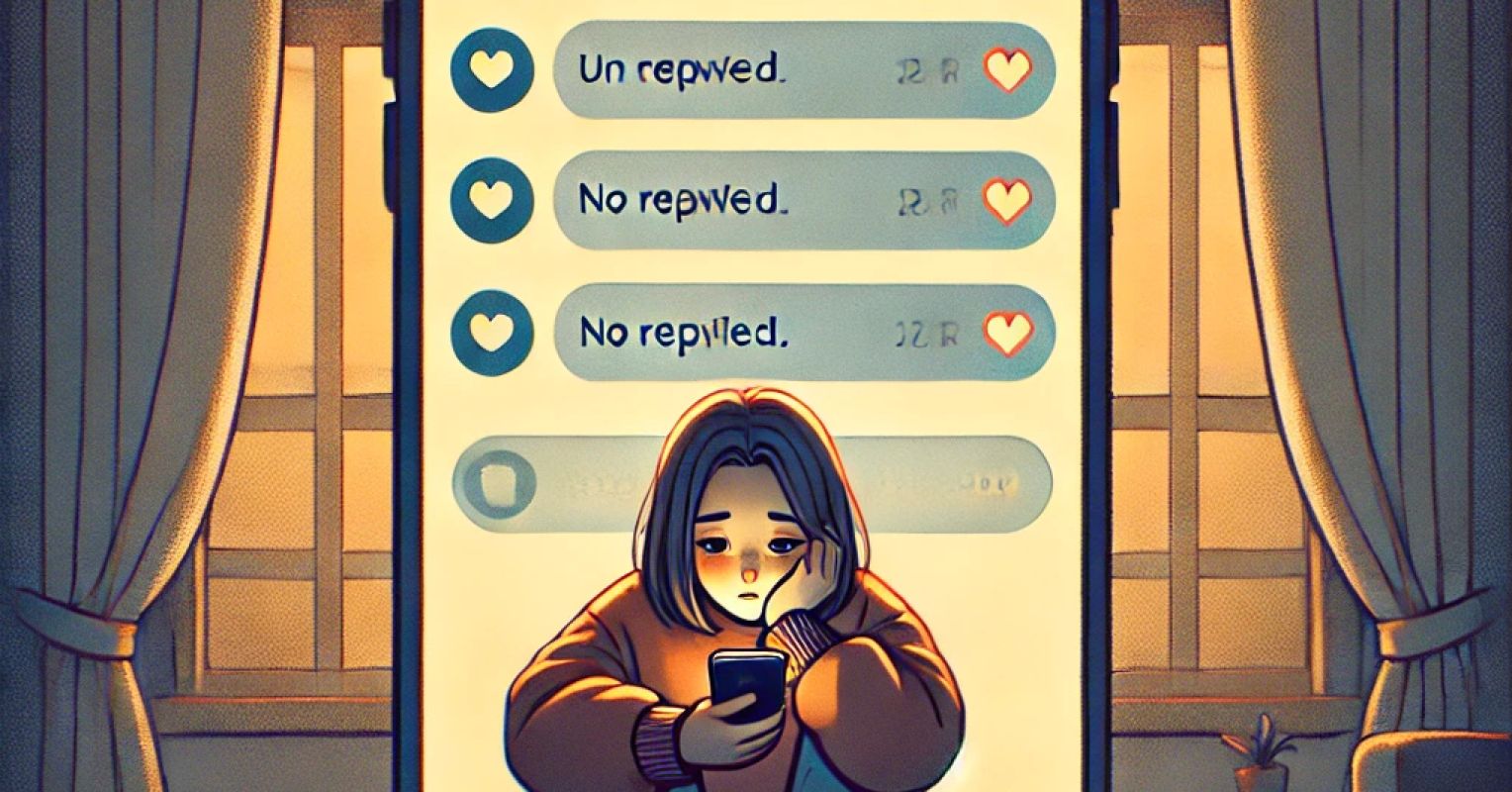
We’ve all heard the term ghosting—the digital vanishing act where someone cuts off all contact without warning. While we have previously explored why people ghost, this post focuses on the other side of the story: what it feels like to be ghosted. From the initial realization to the lasting impact, let’s take a closer look at the emotional journey of the ghosted through four distinct phases.
Phase 1: The Moment of Realization
It starts with an uncomfortable feeling: Something’s off. At first, you might dismiss delayed replies as busyness or bad timing. Maybe they’re swamped at work? But as the silence stretches on, a pattern emerges. The unsettling truth dawns slowly, often helped along by a peek at social media. There they are, posting Instagram stories or liking tweets—just not responding to you. And then, it clicks: I’m being ghosted.
The realization brings a flood of questions. How could someone just disappear like this? Did something bad happen? Many ghostees even play detective, Googling to rule out accidents or emergencies. But once the excuses run dry, the painful truth sets in: They chose to disappear. This moment often triggers a cascade of emotions.
Phase 2: The Emotional Rollercoaster
Ghosting isn’t just silence; it’s an emotional storm. While everyone processes it differently, research highlights four common reactions among ghostees.
Sadness. The loss of connection often hits hard. It’s not just about missing the person but grieving the potential and expectations you’d tied to them. With no explanation or goodbye, closure feels impossible. Psychologists call this ambiguous loss—a lingering uncertainty that keeps you stuck replaying every moment, wondering what went wrong.
Compounding this sadness is a blow to self-esteem. Self-doubt creeps in: Was I not funny, attractive, or interesting enough? These thoughts can spiral, turning you into your harshest critic. Without clarity, you’re stuck trying to solve a puzzle with missing pieces.
Anger. As sadness fades, anger often steps in—or overlaps. Ghosting feels disrespectful, as though your time and feelings didn’t matter. How dare they treat me like this? Frustration deepens when you realize they’ve taken the easy way out, leaving you to deal with the emotional fallout.
But anger doesn’t always target the ghoster. Many ghostees turn it inward, asking themselves, Why didn’t I see this coming? Why did I let this happen? This self-directed frustration can amplify the emotional toll.
Yet, anger can also be empowering. Blocking the ghoster on social media, deleting old messages, or removing photos might seem small, but these acts help reclaim a sense of control. It’s the first step toward moving forward.
Self-blame. In the absence of answers, many ghostees blame themselves. Did I text too much? Was I too eager? Too distant? Every interaction is overanalyzed, searching for the elusive “mistake” that caused the disappearance. Without a clear reason, ghostees often fill the silence with their own perceived faults, as though they missed some unspoken rulebook on dating.
Shame. Ghosting doesn’t just hurt—it can feel humiliating. Many ghostees wrestle with a sense of rejection, wondering, Why wasn’t I worth a proper goodbye? In a world where relationships are often tied to personal success, this shame can feel magnified. But over time, shame can lead to reflection: What do I truly want in a relationship? What boundaries do I need to set next time?
Phase 3: Coping Strategies, From Rational to Radically Emotional
Ghosting is a whirlwind, but, eventually, the question arises: What now? Coping strategies vary widely.
Acceptance. Some ghostees embrace acceptance, rationalizing, This isn’t about me, it’s about them. They delete messages, block the ghoster, and focus on hobbies, friends, or even new romantic prospects. While the sadness and anger remain valid, they refuse to linger in it. Moving on doesn’t mean dismissing emotions—it means prioritizing self-healing.
Cutting ties. For many, the first step to recovery is cutting digital ties. Blocking the ghoster on social media and deleting their contact can feel freeing. It’s like shutting the door on someone who walked out of your life—and locking it behind them.
Seeking answers. Some ghostees can’t let go without trying to understand why. Whether it’s scrolling through the ghoster’s social media or sending one last message, they crave closure. Occasionally, ghosters do offer an explanation—but, often, this search for answers ends in frustration. Not every mystery gets solved.
Becoming the ghoster. Interestingly, people who’ve been ghosted are more likely to ghost others later. This could stem from a desire to protect themselves or a belief that ghosting is simply the norm—Everyone does it, why not me? Still, this doesn’t always bring relief. After all, you know all too well what it’s like to be on the receiving end of that silence.
Phase 4: The Long-Term Impact
The effects of ghosting often linger far beyond the initial silence.
Self-esteem and trust issues. The unresolved questions can leave ghostees doubting themselves for months—or even years. They may become more guarded in future relationships, hesitant to trust new partners. This protective shield, while understandable, can make genuine connection more dificult.
Emotional fallout. In severe cases, ghosting can contribute to anxiety or depressive symptoms. The lack of closure leaves ghostees stuck in a loop of uncertainty.
Growth and reflection. For some, the pain of ghosting becomes an opportunity for personal growth. Reflecting on their needs and boundaries, they emerge stronger and better equipped for future relationships. However, this silver lining often emerges only after the initial storm of emotions has subsided.
Hurt and Haunted
Ghosting isn’t just a modern dating quirk—it leaves deep scars. For those ghosted, the experience can shake self-esteem, trust, and emotional well-being. While the journey to recovery varies, one thing is clear: The echoes of ghosting often last far longer than the relationship itself.
